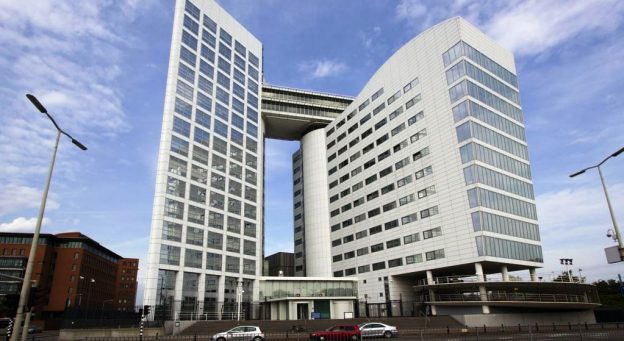Head of the International Criminal Court of Hague Fatou Bensouda said last week that the court was seeking allowance to investigate war crimes in Afghanistan. She said that there was enough evidence of war crimes in Afghanistan and after the primary investigation it reached the conclusion that all legal standards and circumstances were present in Afghanistan to start an investigation. If the Afghan government grants permission to this court, it will investigate the war crimes of the government’s armed opposition, the Afghan security forces, the US soldiers and CIA in Afghanistan since 2003. Afghanistan gained the membership of this court in 2003.
It is not the first time that the International Criminal Court makes such remarks. In one of its report last year, this court had said that between 2003 and 2014, the US forces and CIA have committed many war crimes on the prisoners in Afghanistan. Although the US Senate had also published a report about tortures in Guantanamo in 2014, it will be the first time that an International Court investigates the crimes of the international and national forces in Afghanistan.
The background of the International Criminal Court in Hague, the probable areas of war crimes in Afghanistan and the remarks of Bensouda are issues that are analyzed here.
The International Court of Hague
The International Criminal Court (ICC) is established in 2002 in Hague, Netherland. The main duty of this organization is to investigate war crimes, genocides and crimes against humanity in the member countries since the formation of this court. This court investigates the crimes of those individuals who are older than 18-years old and the position of the accused person does not affect the authorities of court.
This court has 122 members including Afghanistan. The most important countries of the world which are China, Russia, and the US, with the permanent members of the UN Security Council, even though signed the charter of the court in 1998 in Rome, they have not gained the membership of the court yet.
This court have conducted 10 investigations until now; works on nine others; and has accused 39 people of war crimes including the Sudan’s President Omar Al Bashir, the leader Everria Laurent Goba, the leader of Libya Moamar al Qadafi and the President of Kenya Ohero Kyniata.
The probable cases of war crimes
Since 2001, many incidents have occurred that could be investigated by the International Court of war crimes for instance:
First; war crimes by the US forces:
The US directly involved in the Afghan war and with its military, economic and diplomatic power has kept the war going until now. Therefore, there are war crimes in all the aspects of the war in the country; however, we have outlined those incidents that have a higher probability of being investigated. For instance, the case of the Bagram prison, bombings particularly the airstrike on the MSF hospital in Kunduz and some others.
Second; the war crimes committed by the Afghan militias:
Since ever the Afghan Taliban were forced to leave Kabul, unofficial Afghan militias and Afghan forces undertook some actions that showed as if the war continues against a particular ethnic group. Starting from the bloody incident of Qala-e-Jangi until the recent collapse of Kunduz many incidents could come under this list.
Third; war crimes committed by the armed oppositions of the government:
In the ongoing war with the Afghan and US forces, the armed oppositions, particularly the Taliban, are engaged in a bloody war. The Afghan Taliban have carried out many explosions in the rural and urban areas killing many civilians. Based on the international reports, between 2007 and 2017, more than 17000 civilians are killed in the explosions and attacks of the Taliban. However, it should be noted that the Taliban have not claimed the responsibility of every explosions that entailed great civilians casualties.
Political aims in starting the investigation
Although the Court has not said who will be the target of the investigation, it is expected that all parties engaged in Afghanistan including the Afghan government, foreign forces and the armed oppositions of the government will be included in the investigations.
This debates raises at a time that the Afghan government is under pressure by the some former and current government officials and people who played a major role in the security sector after the collapse of the Taliban. On the other hand, compared to the years between 1990 and 2008, the US have lost its hegemony.
Due to internal affairs, the Afghan government may use such investigation; however due to some factors, the probability of such a utilization will reduce. First, the US is not yet a member of this court. Nevertheless, Afghanistan is a member and; therefore, the crimes committed by the US forces in this country are within the jurisdiction of this court. Second, since ever the beginning the US has termed the commencement of such an investigation in Afghanistan as contrary to the security and stability in this country. Third, from the Afghan government’s perspective, granting permission for such an investigation may demoralize the Afghan forces. Therefore, the Afghan government may not allow such an investigation but its rejection seems impossible as well because, on the one hand, Afghanistan is a member of this court and, on the other hand, the Afghan President Ashraf Ghani met head of this court in the US in September 2017.
The End

